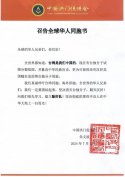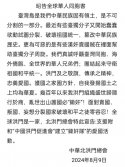The US is not as nuclear happy as it might seem from their rhetoric. They did not nuke China during the Korean War, did not nuke Vietnam during the Vietnam War, and mutually backed off in the game of chicken vs. the USSR. There was no guarantee that the USSR would've used nuclear weapons in retaliation for the US nuking China in 1953, but Truman still denied MacArthur use of the weapon.
In other words, the US is much more prone to bluffing than acting. Hence the primary reason for building up a large MAD arsenal is to stop the US from using escalation dominance as leverage in its bluff games, not because you expect the US to actually launch nukes in response to an invasion of Taiwan. At the same time, however, you shouldn't take the US's failure to use nukes as a sign that it doesn't have escalation dominance. Under that logic, we might as well ask why China hasn't invaded Taiwan if it already could do it? The same logic applies to the US.
Fact is, the US uses its superior nuclear arsenal as a form of deterrence to prevent China from check mating its strategic options in Taiwan. So in back room negotiations the US can always say, "are you really going to risk Beijing for Taipei?" even if they have no actual plans to nuke Beijing. To get the US to back off requires you prove to them that they have no effective strategic options. Then they will back off on their own.
In other words, the US is much more prone to bluffing than acting. Hence the primary reason for building up a large MAD arsenal is to stop the US from using escalation dominance as leverage in its bluff games, not because you expect the US to actually launch nukes in response to an invasion of Taiwan. At the same time, however, you shouldn't take the US's failure to use nukes as a sign that it doesn't have escalation dominance. Under that logic, we might as well ask why China hasn't invaded Taiwan if it already could do it? The same logic applies to the US.
Fact is, the US uses its superior nuclear arsenal as a form of deterrence to prevent China from check mating its strategic options in Taiwan. So in back room negotiations the US can always say, "are you really going to risk Beijing for Taipei?" even if they have no actual plans to nuke Beijing. To get the US to back off requires you prove to them that they have no effective strategic options. Then they will back off on their own.


